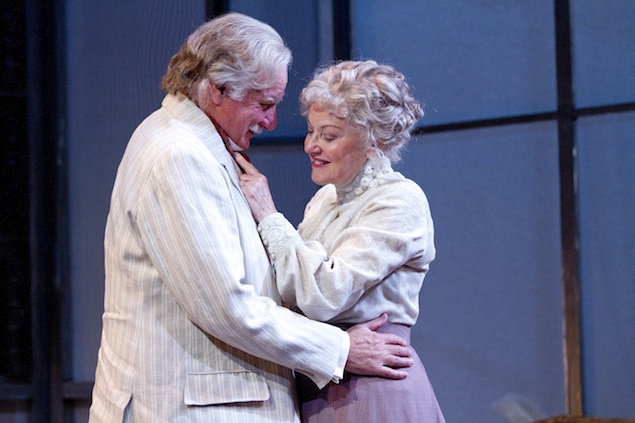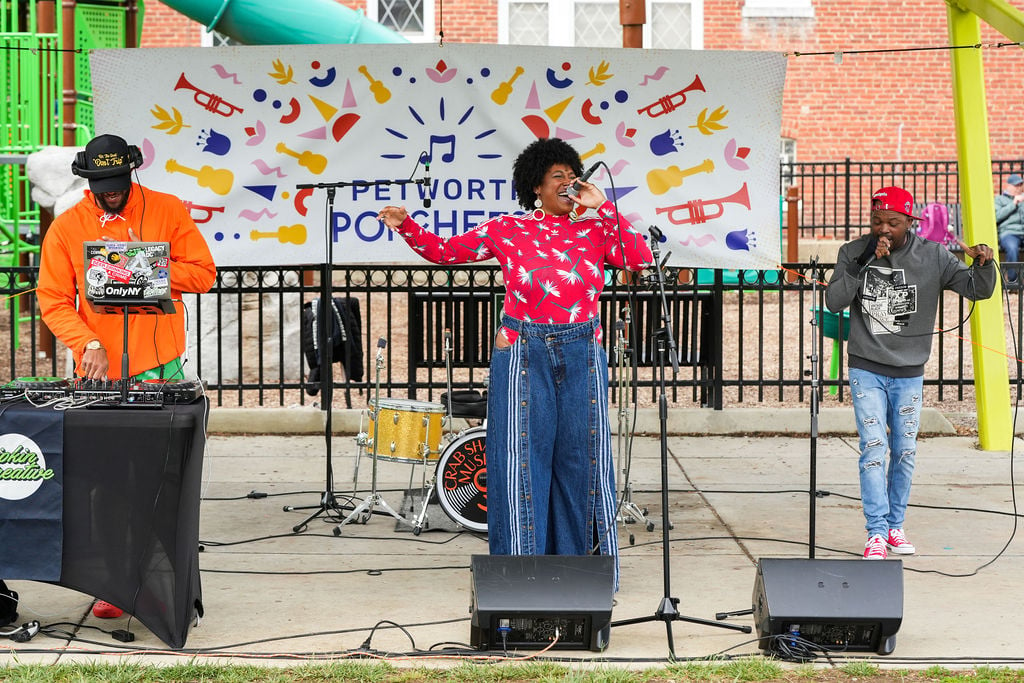
The Tyrone family in Eugene O’Neill’s Long Day’s Journey Into Night bat around blame with the dogged repetitiveness of baseball players warming up. Only what’s at stake is lives, not runs batted in. And what’s uttered over the course of two hours and 40 minutes is life-shattering and soul-destroying.
Even when the blame is tossed like a softball, it can land like a 100-mile-per-hour pitch when actress Helen Carey as Mary Tyrone speaks O’Neill’s words: Her mind clouded by morphine, Mary recounts to her husband memories of a rotten honeymoon, spent alone in ugly hotel rooms, waiting for him to return from bars. Gently shoving the dagger in, she concludes with, “I’m sorry I remembered out loud.”
O’Neill’s famously autobiographical drama about a nuclear family in meltdown at their New England summer cottage, circa 1912, was last done at Arena in 1995, memorably staged by then-artistic director Douglas C. Wager.
This new production is handsome and intermittently enthralling, but oddly muted at times, even in the intimate and theatrically conducive Kreeger space, where it runs through May 6. (It is part of the citywide Eugene O’Neill Festival anchored by Arena and the Shakespeare Theatre Company.)
It is Carey’s riveting Mary Tyrone that pulls this production into emotional focus whenever she’s onstage and when other characters seem a little fuzzy. Her Mary is both technically stunning and heartfelt as she considers, from within an ever-thickening opiate cloud, her years as a wife to the egocentric, miserly ham actor James Tyrone Sr. (Peter Michael Goetz) and as a mother to their wayward older son, James “Jamie” Tyrone Jr. (Andy Bean), and his sickly younger brother, Edmund (Nathan Darrow).
Carey is by turns flirtatious, loving, sad, passive-aggressive, and obsessively chatty as her character sinks back into the addiction her husband and sons fear, though she’s recently back from a stay in a sanitorium to kick the habit. They sense she’s using again, every time she goes upstairs for a nap and comes back down voicing stream-of-conscious memories. She recalls the suffering caused by her husband’s penny-pinching ways; she blames herself and Jamie for the death of a third child; and she worries about her surviving sons. She has reason to be concerned. Jamie is a hard-drinking actor like his father, but with an additional penchant for brothels; Edmund has a touch of the poet, but may be fatally consumptive.
Guest director Robin Phillips, who has extensive credits in England, Canada, and in the US, among them leading Canada’s Stratford Festival, has chosen to underplay the epic/tragic strains in Long Day’s Journey. This approach renders it more accessible, but not quite “big” enough. Only near the final blackout does this production truly yank the audience into the Tyrones’ downward spiral in a visceral way.
Goetz brings a comical brio and a mildness to the senior Tyrone, playing him not as a villain but as a selfish man who sees his own flaws. You believe his backpedaling when the sickly Edmund chides his father for trying to save money by sending him to a state-run hospital for his lungs. James Sr.’s speeches about growing up dirt poor and about abandoning his lofty theatrical ambitions to make a buck touring endlessly in a melodrama are sympathetic. And his affection for his wife seems quite real.
Darrow’s Edmund is terrific: He plumbs all the character’s anguish about his thus-far wasted life, his love of words and of nature, and his conflicted feelings about his family. Bean’s Jamie, on the other hand, appears younger than Edmund despite the gray added to his temples, and his portrayal, a steady mix of anger and drunkenness, feels callow and lacks nuance.
The play unfolds almost entirely in the parlor of the Tyrones’ summer house. Hisham Ali‘s spare design is all grays and beiges, with heavy upholstered furniture and tall bookshelves filled with musty volumes. The walls are not walls but rather see-through scrims, giving a sense of the foggy outdoors and of what appears to be a wrap-around veranda.
The staircase leading to the upstairs bedrooms has a central position at the back, complete with a portrait of James Sr.’s beloved Shakespeare on the wall at the landing. It is down that staircase that Mary Tyrone makes her increasingly drug-addled entrances. She used to play the piano, we learn, and transitions between acts are accompanied by the sounds of the 19th-century romantic pieces she probably loved. Sound designer James Sugg and Arena’s technicians also create a subtle and haunting reverb effect when characters raise their voices in anger.
This Long Day’s Journey Into Night may not change your life in the way a more uniformly transcendent production would. Yet it has the power to compel you to watch this family trapped in perpetual crisis as if in amber.
Long Day’s Journey Into Night is at Arena Stage through May 6, in the Kreeger Theater as part of the Eugene O’Neill Festival. Tickets ($40 to $85) are available through the theater’s website. Information on discount tickets is available here.


















